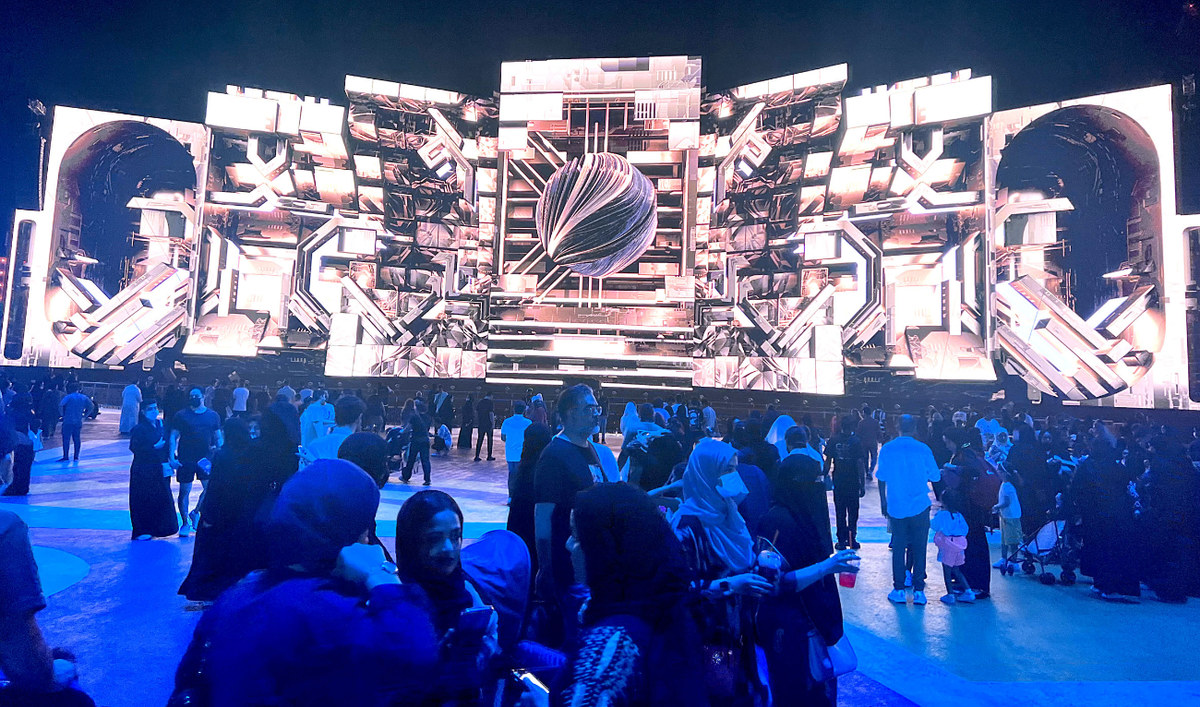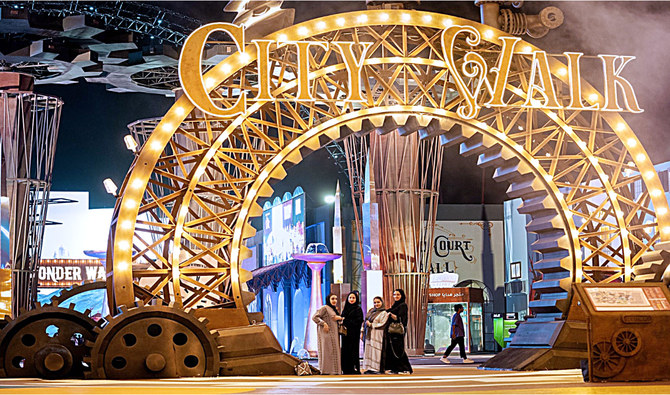JEDDAH: City Walk, one of the nine zones of Jeddah Season, concluded its activities today.
Designed with unparalleled imagination, the nine sub-zones of City Walk — Entry Village, Food Hall, Fashion Village, Splash, Horror Village, Jeddah Live, Adventure, X-reality, and Anime Village — gave every visitor a fully integrated experience.
Audiences indulged in a wide array of events, some of which had never before been seen in the Kingdom.

(Supplied)
Alex Morgan-George, project manager of the X-reality games zone, said: “The X-reality was one of the most visited areas in City Walk. It is a place where reality meets the imagination.
“We had brought in a little extra dimension of reality to the gaming sector, where the visitors get to feel the impact of the games with body suits. It was open to everyone — whether children, young people or adults — to experience and enjoy VR. Since many people in Saudi Arabia love gaming, we are aiming in future to have lot more attractions and double in size.”
The X-reality zone consisted of four fully-immersive options: “Spree” offering family-friendly virtual reality entertainment, “Hologate Blitz,” consisting of futuristic themed games, “Hologate Arena,” a free roam VR area with different games option, and the “Tesla Suit” experience that used a VR headset to provide a startling simulation of the world through the senses of hearing, seeing and touching.
Ahmed Alattas, the senior rides mechanical engineer of Sela Co., said: “We managed to build a unique ride in Saudi Arabia especially for the City Walk called ‘Big Wave’ which included a huge amount of waves and an experience never felt before.
“There were many challenges due to Jeddah’s weather conditions, but we overcame all trials and created the most amazing rides both in City Walk and Jeddah Pier. Visitors had an opportunity to enjoy the most hair-raising and thrilling rides.”

(Supplied)
The last few days of City Walk featured several unique activities and events. Performing for the first time in the Middle East, famous Japanese pop singer and lyricist Aimer enthralled the Saudi audience.
Japanese culture was also appreciated through a 100-person costume contest, and the zone’s Anime Therapy Awards at the Anime Village.
The last day of City Walk witnessed a graduation themed party, where visitors had the opportunity to dress up as university graduates, featuring a parade.
Saudi national Mohammed Ali, 32, said: “I especially loved the X-reality. Wearing the ‘Tesla Suit’ was a life-long experience. There was a moment where I could actually feel the punch in my stomach while playing the game, along with the raindrops and other sensory skills.”


























